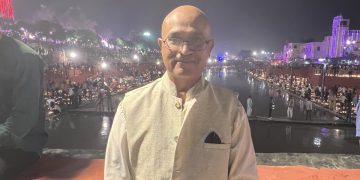Raksha Bandhan or Raakhee, the Indian festival of brotherly love and protection, was observed on August 19 by Indo-Caribbean Hindus in USA and in Guyana and throughout the Indian or Hindu diaspora. It is a tradition to observe the festival which usually falls on a full moon in August. Being a work day, Raakhee was observed on Sunday August 18 in Mandirs around the US; full moon was between August 18 and 19. The festival was brought to the Caribbean and has been transplanted to America, Canada, UK, and Europe by Hindu Guyanese, Trini, and Surinamese migrants over the last fifty years. Hindus from Fiji and Mauritius also observed the festival wherever they have settled — UK, Australia, New Zealand, Canada, USA.
The festival involves females tying a sacred thread (raakhi) on the wrist of males who they consider to be their brother; flowers are offered, and aartee performed on the male, and is fed a sweet in the ritual. At one time, raakhi was a simple thread tied on the wrist of the male. In recent years, raakhi has become commercialized and come in all colours, shapes, and sizes. After tying of the scared thread, the brother in turn offers his sister (s) a symbolic gift (cash or a present) and commit to protect her against dangers and help her and her siblings to succeed in life. It is a renewal of a bond between or among sisters or females and brothers or males. It is not unusual for a younger brother to tie a raakhi on an elder brother.
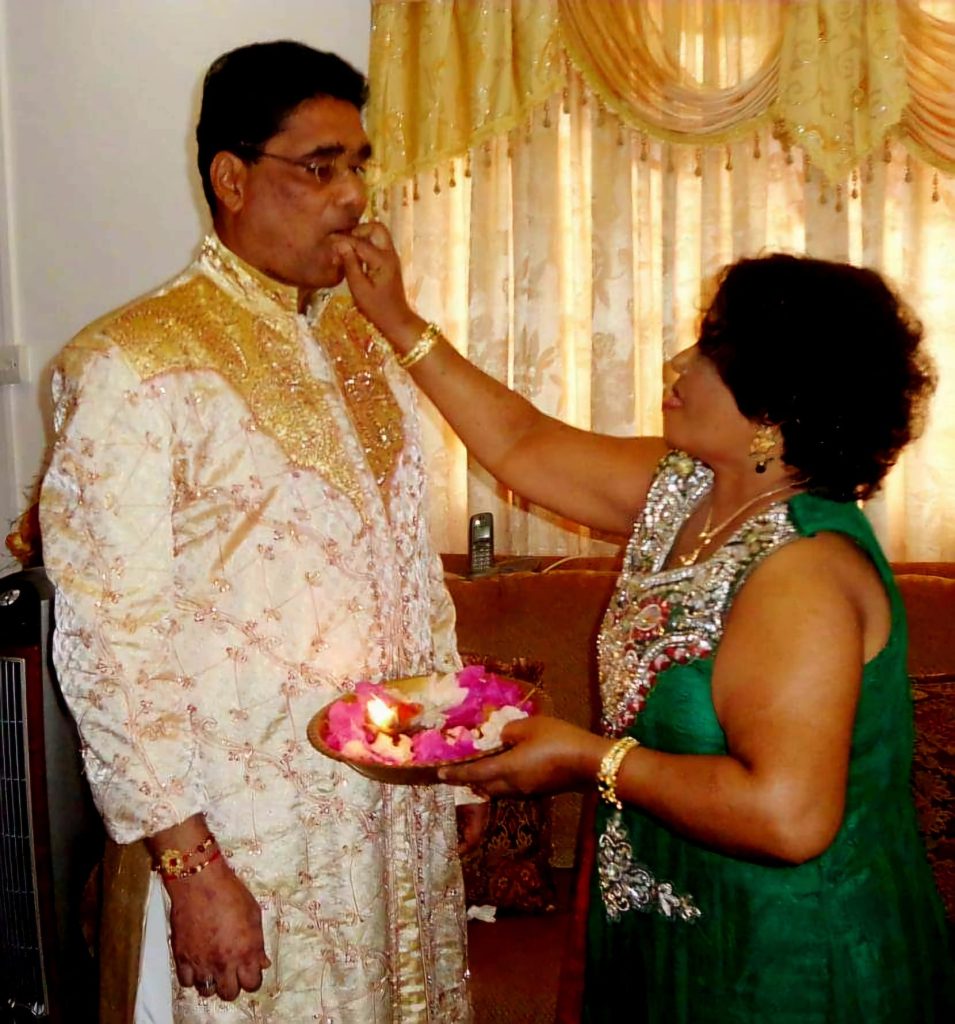
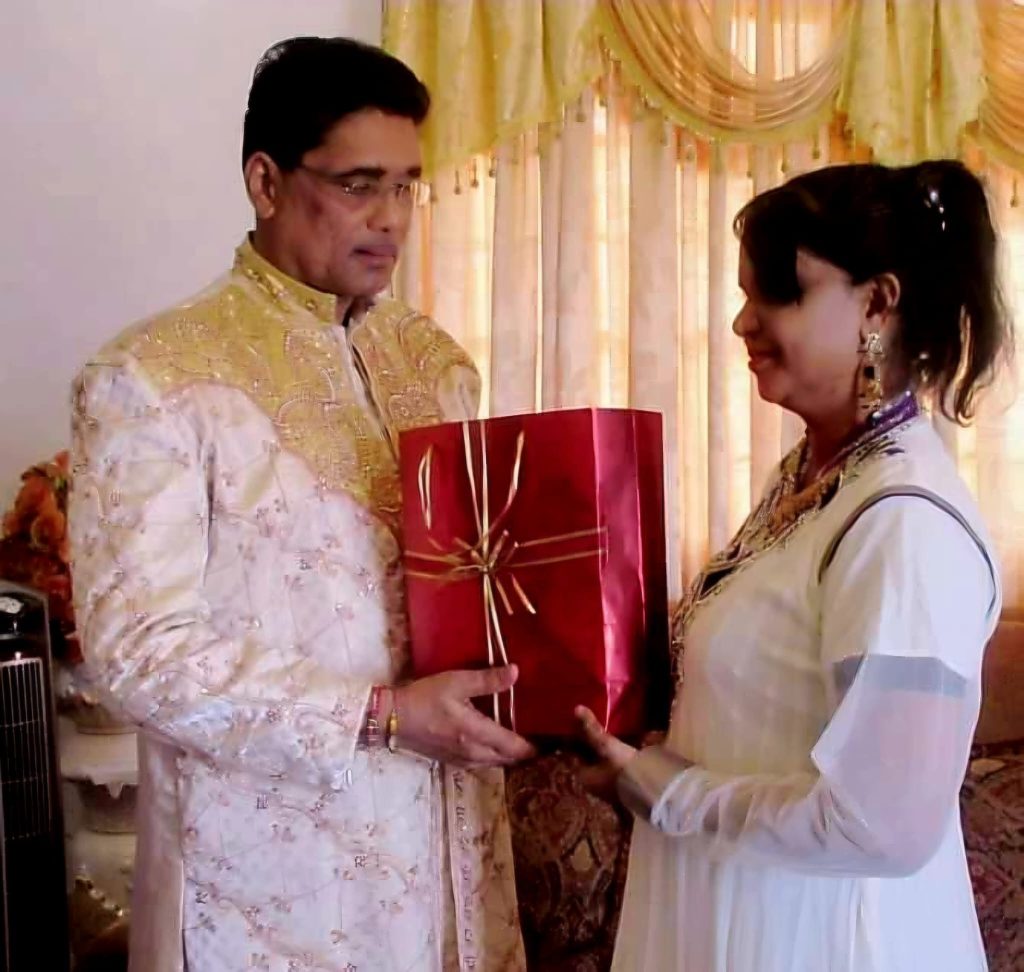
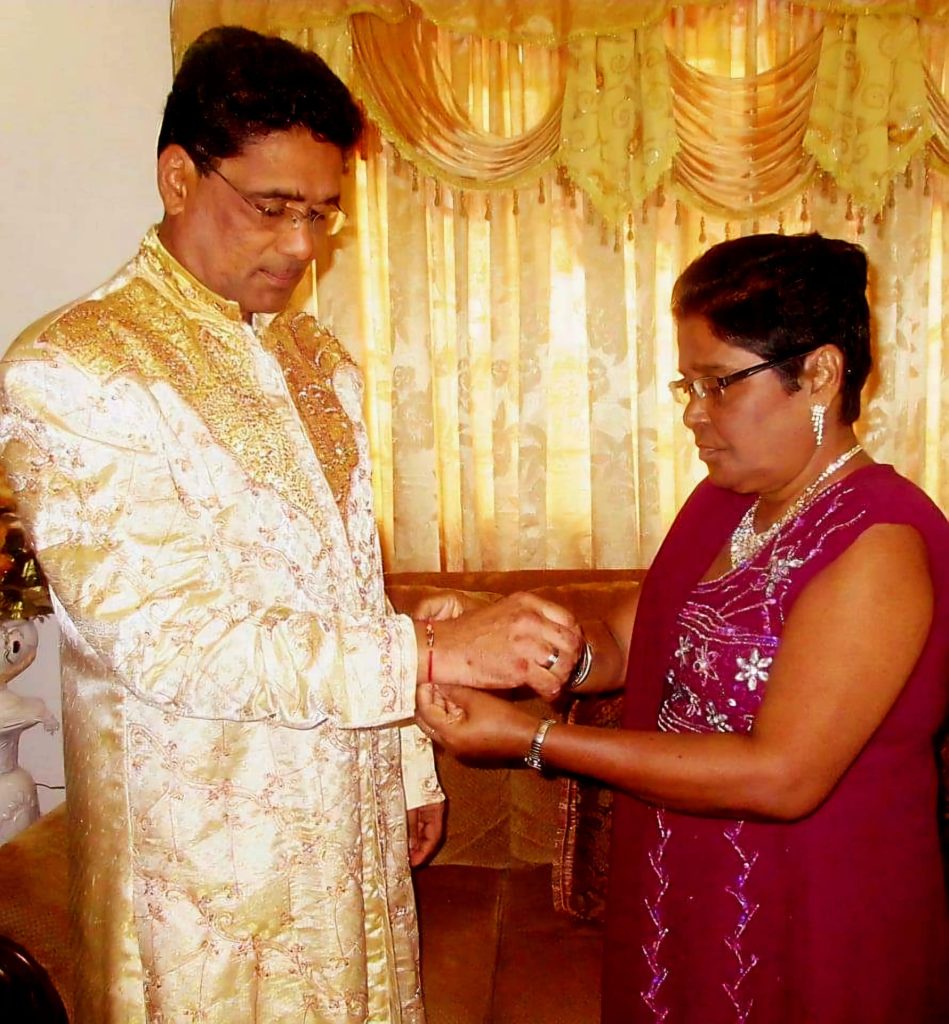
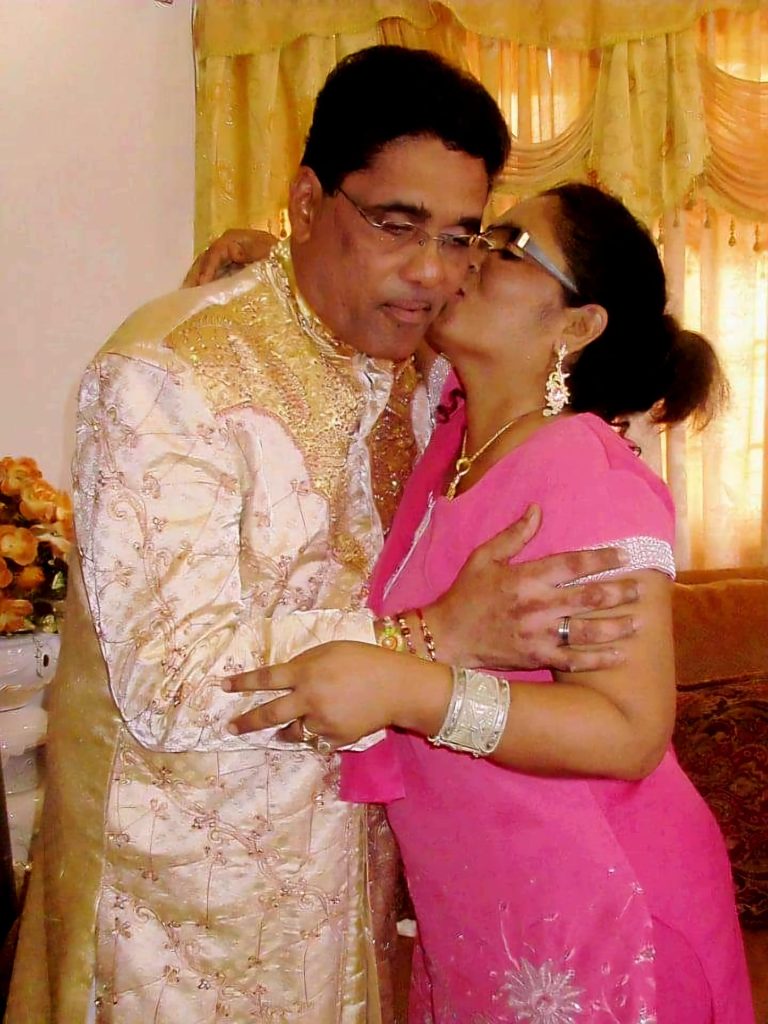 This festival and its symbolic bond of protection is very important and has been observed in Guyana, Trinidad, and Surinam ever since indentured laborers arrived some 186 years ago and has continued till this day; Hindus in Fiji, Mauritius, South Africa, Kenya, Uganda, and other parts of the diaspora also observed Raksha Bandhan. It was also observed for decades in other Caribbean territories like Jamaica, Grenada, St. Lucia, St Vincent, among others that also received indentured laborers. The festival gradually became marginalized and has largely disappeared in these societies, the result of westernization and creolization.
This festival and its symbolic bond of protection is very important and has been observed in Guyana, Trinidad, and Surinam ever since indentured laborers arrived some 186 years ago and has continued till this day; Hindus in Fiji, Mauritius, South Africa, Kenya, Uganda, and other parts of the diaspora also observed Raksha Bandhan. It was also observed for decades in other Caribbean territories like Jamaica, Grenada, St. Lucia, St Vincent, among others that also received indentured laborers. The festival gradually became marginalized and has largely disappeared in these societies, the result of westernization and creolization.
Although a Hindu festival, it takes on a secular tone with non-Hindus and even non-Indians partaking in the ritual ceremonies. Many Africans in relationship with Indians or liv9ng in areas where Indians reside also observe Raakhee. The term “raakhi brother” is often used for those non-blood males who received a raakhi or scared thread from a blood or adopted sister.
In India, the festival is largely Hindu and observed in the North but it is also celebrated by people of all faiths. Hindus, Muslims, Christians, Jains, and Sikhs participate in the celebrations.
In the US, Raksha Bandhan was celebrated at Indian Consulates and Embassy (Washington) and at the UN Mission. And in Guyana, Trinidad, and Suriname, Raakhi was observed by Hindus at homes and in mandirs and places of work. In New York and in other cities, worshippers celebrated the festival at the over one hundred Guyanese, Trinidadian, and Surinamese mandirs. Traditional meals were served at the mandirs after the tying of raakhee and conclusion of service. Colorful raakhees were on display on Liberty Ave in front of shops over the last few weeks.
Raksha means protection and raakhee is a reminder to protect the females from abuse. But he meaning of the festival is not being adhered to. One is reminded that Indo-Guyanese females have been the subject of much physical abuse in Guyana and occasionally in America. Atrocities against women of all ethnicities have been growing in Guyana. Males must control their behavior; seek counseling instead of using violence against females to address domestic problems.
Pix shows a typical Raksha Bandhan festival observance.































